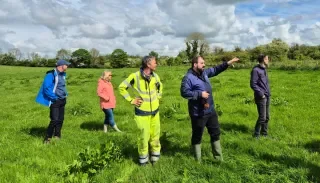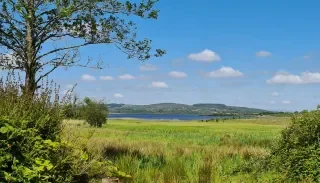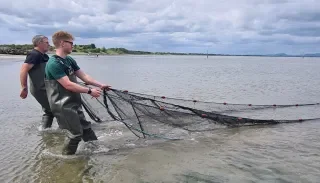Water, Communities and Catchments
The Centre for Freshwater and Environmental Studies, DkIT

Research in this thematic area supports strategic alliances and partnerships with major external organisations in the key area of water, climate action, governance and sustainable communities. CFES has become a significant player in the environmental sector with important ongoing International and National projects funding through a variety of source including Interreg NWE, SFI National Challenge Fund, MCSA ITN and others.
In addition to supporting communities, the learnings and knowledge generated have a grounded validity across the water sector. CFES has a close and longstanding working relationship with the National Federation of Group Water Schemes (NFGWS) and various NGOs, e.g. Development Perspectives and the Rivers Trusts Ireland, including ORCCA.
CFES (Dr Suzanne Linnane) represents the Education Sector on An Fórum Uisce | Water Forum.

Researchers:
- Dr Suzanne Linnane (Theme Lead/Principal Investigator)
- Dr Caroline Gilleran Stephens (Principal Investigator)
- Dr Sarah Murnaghan (Principal Investigator)
- Dr Eleanor Jennings (Emeritus Principal Investigator)
- Dr David Getty (Emeritus Principal Investigator)
- Dr Hammond Antwi Sarpong (Postdoctoral Research Fellow)
- Dr Reza Tavangar (Postdoctoral Research Fellow)
- Ricardo Marroquín Paíz (Postgraduate Researcher)
- Emma Drohan (Postgraduate Researcher)
- Kofi Agyei (Postgraduate Researcher)
- Mahak Sharma (Postgraduate Researcher)
